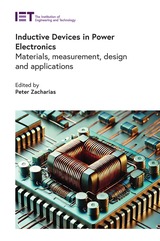
Whenever the subject of communities and communal living comes uo, a variety of doubts and suspicions is usually aroused. The possible brainwashing of impressionable young people is frequently mentioned. Although the idea itself is centuries old, it has yet to be accepted as an approved method of living, even in this so-called New Age.
Of the many hundreds that have been started, very few have proven successful. The fact that Ananda has done so remarkably well against terrifying odds, and that at every time of crisis help always seems to come in some extraordinary way, invites attention. During his lifetime, which ended in 1952, Yogananda called for the founding of spiritual communities dedicated to world brotherhood and to "simple living and high thinking." Ananda is the first response to this directive. Its remarkable history, and its present expanding horizons, are the subject of this work.
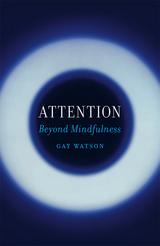
If there is one thing we are short on these days, it’s attention. Attention is central to everything we do and think, yet it is mostly an intangible force, an invisible thing that connects us as subjects with the world around us. We pay attention to this or that, let our attention wander—we even stand at attention from time to time—yet rarely do we attend to attention itself. In this book, Gay Watson does just that, musing on attention as one of our most human impulses.
As Watson shows, the way we think about attention is usually through its instrumentality, by what can be achieved if we give something enough of it—say, a crisply written report, a newly built bookcase, or even a satisfied child who has yearned for engagement. Yet in losing ourselves to the objects of our fixation, we often neglect the process of attention itself. Exploring everything from attention’s effects on our neurons to attention deficit disorder, from the mindfulness movement to the relationship between attention and creativity, Watson examines attention in action through many disciplines and ways of life. Along the way, she offers interviews with an astonishing cast of creative people—from composers to poets to artists to psychologists—including John Luther Adams, Stephen Batchelor, Sue Blackmore, Guy Claxton, Edmund de Waal, Rick Hanson, Jane Hirshfield, Wayne Macgregor, Iain McGilchrist, Garry Fabian Miller, Alice and Peter Oswald, Ruth Ozeki, and James Turrell.
A valuable and timely account of something central to our lives yet all too often neglected, this book will appeal to anyone who has felt their attention under threat in the clamors of modern life.
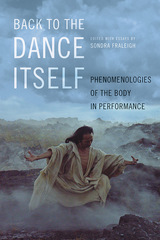
Contributors: Karen Barbour, Christine Bellerose, Robert Bingham, Kara Bond, Hillel Braude, Sondra Fraleigh, Kimerer LaMothe, Joanna McNamara, Vida Midgelow, Ami Shulman, and Amanda Williamson.
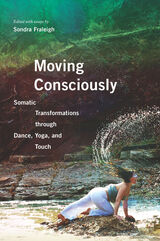
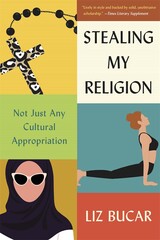
“Bucar’s sharp insights, shot through with humor and self-awareness, are exactly what we need the next time we reach over to borrow from someone else’s religion for our own therapeutic, political, or educational needs.”
—Gene Demby, cohost and correspondent for NPR’s Code Switch
“So finely written, so intelligent and fair, and laced with such surprising discoveries that it deserves a reader’s full attention…As the act of walking a religious pilgrimage does invite greater self-awareness…Stealing My Religion is now an essential part of that worthy endeavor.” —Kurt Caswell, Los Angeles Review of Books
“Lively in style and backed by solid, unobtrusive scholarship.” —Jonathan Benthall, Times Literary Supplement
“With interpretive subtlety and ethical vision, Liz Bucar explores the moral risk of intercultural theft. Stealing My Religion is a powerful intervention by a leading scholar of religion into the illiberal results of everyday religious exploitation. Highly recommended." —Kathryn Lofton, author of Consuming Religion
Liz Bucar unpacks the ethical dilemmas of a messy form of cultural appropriation: the borrowing of religious doctrines, rituals, and dress for political, economic, and therapeutic reasons. Does borrowing from another’s religion harm believers? Who can consent to such borrowings? Bucar sees religion as an especially vexing arena for appropriation debates because faiths overlap and imitate each other and because diversity within religious groups scrambles our sense of who is an insider and who is not. Indeed, if we are to understand why some appropriations are insulting and others benign, we have to ask difficult philosophical questions about what religions really are.
Stealing My Religion guides us through three revealing case studies—the hijab as a feminist signal of Muslim allyship, a study abroad “pilgrimage” on the Camino de Santiago, and the commodification of yoga in the West. We see why the Vatican can’t grant Rihanna permission to dress up as the pope, yet it’s still okay to roll out our yoga mats. Reflecting on her own missteps, Bucar comes to a surprising conclusion: the way to avoid religious appropriation isn’t to borrow less but to borrow more—to become deeply invested in learning the roots and diverse meanings of our enthusiasms.
READERS
Browse our collection.
PUBLISHERS
See BiblioVault's publisher services.
STUDENT SERVICES
Files for college accessibility offices.
UChicago Accessibility Resources
home | accessibility | search | about | contact us
BiblioVault ® 2001 - 2025
The University of Chicago Press



